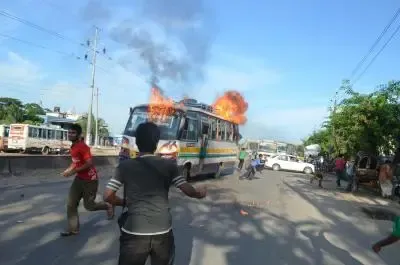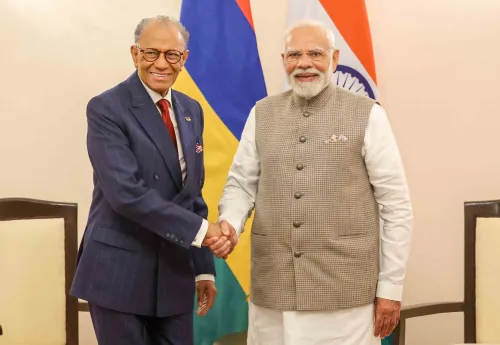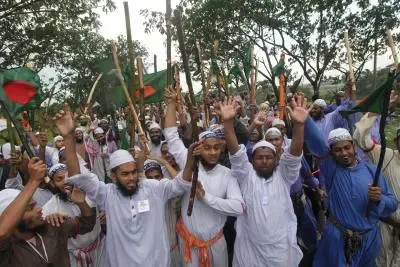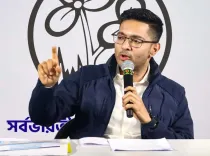How Did Bangladesh Allow Passion to Transform into Permanent Instability?
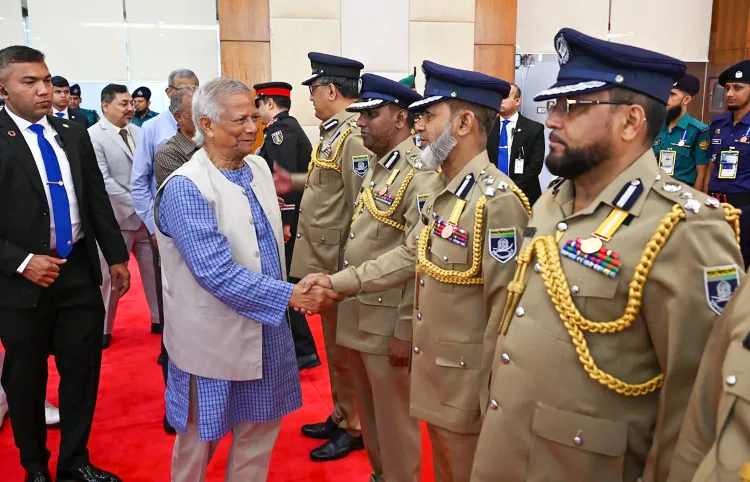
Synopsis
Key Takeaways
- Bangladesh's political instability stems from the 2024 government collapse.
- The military's passive role contrasts sharply with Nepal's decisive action.
- Yunus's governance lacks essential statecraft qualities.
- Mob rule and extremism have surged amid the chaos.
- Immediate military intervention is necessary for national recovery.
Dhaka, Sep 16 (NationPress) A recent report has drawn parallels between the violent protests in Nepal last week and the ousting of the Awami League government, headed by former Prime Minister Sheikh Hasina, in Dhaka last year. The report highlights how the Bangladeshi army, once viewed as a protector of sovereignty, remained passive and complicit during the 2024 governmental collapse.
In contrast to Nepal, the report from Eurasia Review pointed out that Bangladesh allowed emotional fervor to evolve into lasting instability. The country's Generals stepped back, yielding control to mobs and opportunists, resulting in a situation where neither the populace nor institutions can claim ownership of the political process.
The report criticized Bangladesh's Chief Adviser, Muhammad Yunus, asserting that governing a fragile nation of 170 million requires more than just experience managing a bank for the impoverished. It demands the discipline of statecraft, the capacity to juggle competing interests, and the legitimacy derived from a democratic mandate—all qualities Yunus reportedly lacks, relying instead on Western support and NGO networks.
According to Bangladeshi political and defense analyst M A Hussain, the contrast with Nepal is stark. When unrest in Kathmandu threatened to escalate into civil war, the Nepali army acted promptly, securing institutions while engaging in dialogue with protesters. A respected figure, Sushila Karki, was appointed as caretaker prime minister with a clear electoral timeline. Unlike Bangladesh, where the initial call for reform turned into chaos, Nepal's approach prioritized stability. The report emphasizes that passion without perspective
The previous government, led by Sheikh Hasina, was overthrown following massive student protests in 2024. However, this leaderless movement lacked discipline and foresight, leaving it vulnerable to opportunists and political Islamist factions. What began as a demand for reform devolved into mob rule, extortion, and violence, the report underscores.
Yunus’s interim administration represents the latest chapter in this ongoing crisis. Instead of restoring order, it has witnessed the resurgence of extremist groups that were previously suppressed under Hasina's strict governance. The economy is faltering, law enforcement is in disarray, and promised elections feel increasingly elusive. Interim governments should be temporary stewards focused on establishing conditions for free and fair elections.
Despite more than a year passing since Hasina's ouster, Bangladesh remains in a state of political uncertainty. The constitution is effectively suspended, and Yunus shows no urgency to restore power to the populace. Meanwhile, political Islamist parties are regaining ground, potentially destabilizing the already fragile new order. The report warns against granting these groups unchecked freedom, as every concession undermines sovereignty and fuels extremism.
The report asserts that for Bangladesh to recover, its military must act decisively, similar to Nepal.
"For Bangladesh's recovery, the army must take decisive action, just as Nepal did. It needs to reclaim the streets, safeguard the daily lives of citizens, and prevent extremist groups from capitalizing on the existing void. A temporary national government or similar structures, governed under military oversight, may be essential to restore constitutional order and facilitate elections free from interference by Islamist opportunists and foreign entities," Hussain concluded.


